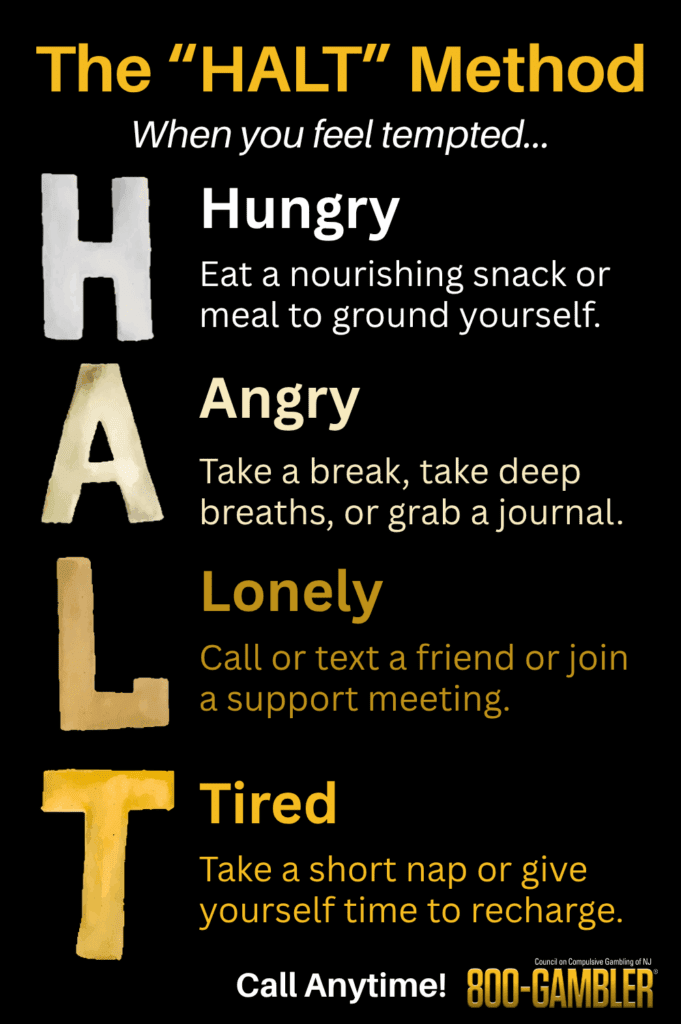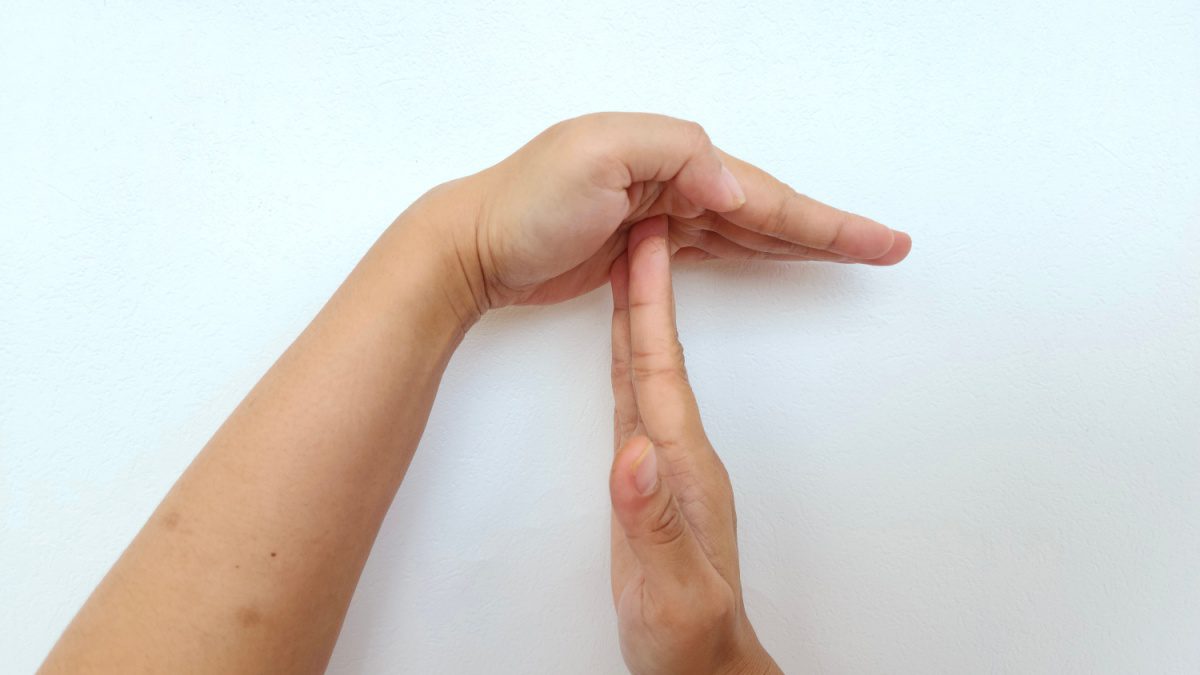When the urge to gamble strikes, it can feel immediate and intense. In those moments, it’s easy to act on impulse — placing a quick bet, opening a familiar app, or chasing a temporary sense of relief. But what if there were a simple way to pause, check in with yourself, and better understand the true source of that urge?
The HALT method offers exactly that. It’s a straightforward tool designed to help you become more aware of your emotional and physical needs. HALT stands for Hungry, Angry, Lonely, and Tired — four common states that can increase the likelihood of engaging in behaviors that feel good in the moment but can have unwanted consequences later. Let’s explore how HALT works, how to use it when gambling urges arise, and how it can help support healthier decision-making in everyday life.
What Is the HALT Method?
The HALT method is a quick self-check that encourages you to pause before reacting. When you feel the urge to gamble, HALT invites you to ask yourself four simple questions:
- Am I Hungry?
- Am I Angry?
- Am I Lonely?
- Am I Tired?
Each of these states can cloud judgment, fuel impulsive decisions, and make gambling feel more appealing. By identifying what you’re really feeling, you can respond to your actual needs instead of reacting to discomfort or stress.
This technique doesn’t require special tools or training. It’s a practical, on-the-go strategy you can use whenever an urge surfaces.

H is for Hungry
Hunger isn’t just physical. While skipping meals or running on an empty stomach can certainly affect your energy and focus, emotional hunger also plays a role. You might be seeking comfort, stimulation, or a sense of reward, and gambling can seem like a quick fix.
Before acting on the urge to gamble, ask yourself if you’ve eaten recently. A small, nutritious snack or meal can help stabilize your mood and energy. And if it’s emotional hunger you’re feeling, try to identify what your heart really needs: maybe a conversation with a friend, a moment of calm, or a creative outlet. Taking care of your body and your emotions helps you feel stronger and more in control.
A is for Angry
Anger can bubble up for many reasons: work stress, family tension, or internal frustration. When anger simmers below the surface, it can create restlessness or a desire to escape.
Gambling may offer that escape — a way to distract yourself or shift focus. But it doesn’t resolve the underlying issue and can lead to regret or even more frustration later on.
Instead, try to acknowledge your anger. Go for a walk, write your thoughts in a journal, or vent to someone you trust. These approaches won’t erase the anger, but they will help you move through it in a healthier way.
L is for Lonely
Loneliness isn’t always about being alone. You can feel isolated in a crowd, especially if you’re missing meaningful connection. Gambling, particularly in social settings or online communities, might seem like a way to feel engaged or less alone.
However, these interactions are often shallow or one-sided. What you may truly need is human connection built on care and understanding. If loneliness is driving the urge to gamble, try reaching out. A phone call, video chat, or face-to-face conversation can lift your mood and help you feel more connected. Real support comes from relationships that nurture you, not from games that keep you chasing a feeling.
T is for Tired
Tiredness affects everything from your mood to your decision-making skills. When you’re running low on rest, even small challenges can feel overwhelming. You may be tempted to gamble as a distraction or pick-me-up, especially if you’re feeling drained.
But gambling won’t restore your energy. If anything, it can leave you more exhausted — mentally, emotionally, and financially. Instead of turning to gambling when tired, give yourself permission to rest. A short nap, a break from screens, or an early bedtime can make a big difference in how you feel. Prioritizing rest allows you to handle stress with a clearer head and stronger mindset.
How the HALT Method Supports Lasting Change
The beauty of the HALT method lies in its simplicity. By giving yourself a moment to stop and reflect, you gain clarity. You start making choices based on your needs, not your impulses, and you can stop worrying about the feelings of shame and guilt you get after you’ve lost money gambling.
HALT doesn’t guarantee that every urge will vanish. But it puts space between the feeling and the action — and that space is where change begins. Over time, practicing HALT can strengthen your emotional awareness and reduce the power gambling urges have over your day-to-day life.
When to Reach Out for Help
Even with helpful tools like HALT, some days are harder than others. If gambling has become a way you regularly cope with stress, boredom, or emotional pain, it may be time to seek extra support.
At 800-GAMBLER, we’re here to help. Our helpline is free, confidential, and available 24/7. Whether you have questions, need resources to learn more about something specific, like ADHD and gambling, or just want to talk through what you’re going through, you’ll find someone who listens and cares.
You don’t have to face it alone. Taking that first step toward support is one of the most powerful decisions you can make.
HALT & Build Better Habits
Urges to gamble often come when you’re at your most vulnerable: hungry, angry, lonely, or tired. The HALT method offers a way to pause, reflect, and respond with intention instead of impulse. By practicing this simple tool and caring for your core needs, you can create space between the urge and the action, and choose a path that leads to clarity and peace of mind.
If you or someone you care about is struggling with gambling urges, 800-GAMBLER is ready to help. Call our toll-free, confidential helpline anytime. You deserve support that truly understands what you’re facing and how to move forward.



